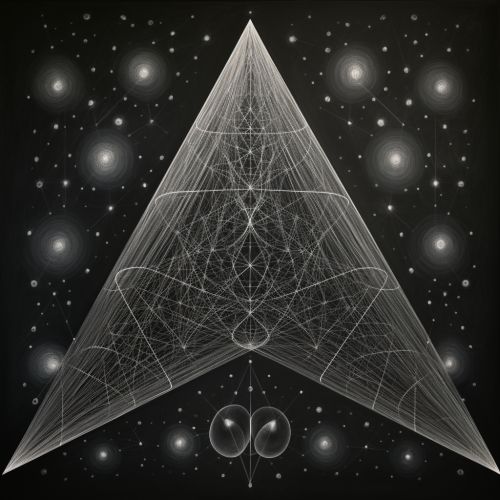Formal System
Overview
A formal system is a system of well-defined symbols and inference rules that are used to generate strings of symbols. It is a fundamental concept in the fields of logic, computer science, and mathematics, especially in areas such as proof theory, computability theory, and formal language theory. The study of formal systems is central to understanding the nature of languages, syntax, and the structures they form.


Definition
A formal system is defined by a finite set of symbols, often called the alphabet of the system, and a set of production rules that describe how the symbols can be combined to form strings. These strings, in turn, can be used to construct more complex structures, such as sentences, proofs, or programs. The system is "formal" in the sense that the rules for manipulating the symbols are based solely on their form, not on any interpretation or meaning they may have.
Components of a Formal System
A formal system typically consists of the following components:
Alphabet
The alphabet of a formal system is a finite set of symbols that can be used to construct strings in the system. These symbols may represent logical operators, variables, constants, or other entities, depending on the specific system.
Formation Rules
Formation rules, also known as syntax rules, define how symbols from the alphabet can be combined to form well-formed formulas (WFFs), which are the valid strings in the system. These rules are purely syntactic and do not depend on any interpretation of the symbols.
Axioms
Axioms are a set of WFFs that are assumed to be true within the system. They serve as the starting point for the derivation of other formulas.
Inference Rules
Inference rules specify how new WFFs can be derived from existing ones. The most common inference rule is modus ponens, which allows one to infer a conclusion from a conditional statement and its antecedent.
Types of Formal Systems
There are many types of formal systems, each with its own unique set of symbols, formation rules, axioms, and inference rules. Some of the most well-known types include:
Propositional Logic
Propositional logic, also known as sentential logic or statement logic, is a formal system in which the basic units are propositions—statements that can be either true or false.
Predicate Logic
Predicate logic, also known as first-order logic, extends propositional logic by introducing quantifiers, which allow for the expression of properties and relations between objects.
Formal Arithmetic
Formal arithmetic, such as Peano arithmetic, is a formal system that represents the natural numbers and their basic operations.
Formal Set Theory
Formal set theory, such as Zermelo-Fraenkel set theory, is a formal system for representing sets and their properties.
Formal Systems in Computer Science
In computer science, formal systems are used in a variety of ways, including in the design of programming languages, the verification of software and hardware, and the study of computability and complexity.
Formal Languages
A formal language is a set of strings over a given alphabet that are defined by a specific set of formation rules. Formal languages are used in computer science to define the syntax of programming languages and data formats.
Formal Verification
Formal verification is the use of formal systems to prove or disprove the correctness of algorithms, programs, or hardware designs. This is done by constructing a formal model of the system and then using a formal proof system to show that the model satisfies a given specification.
Computability and Complexity
The study of computability and complexity involves the use of formal systems to characterize the computational power of machines and the inherent difficulty of computational problems.
